How to bake a difference
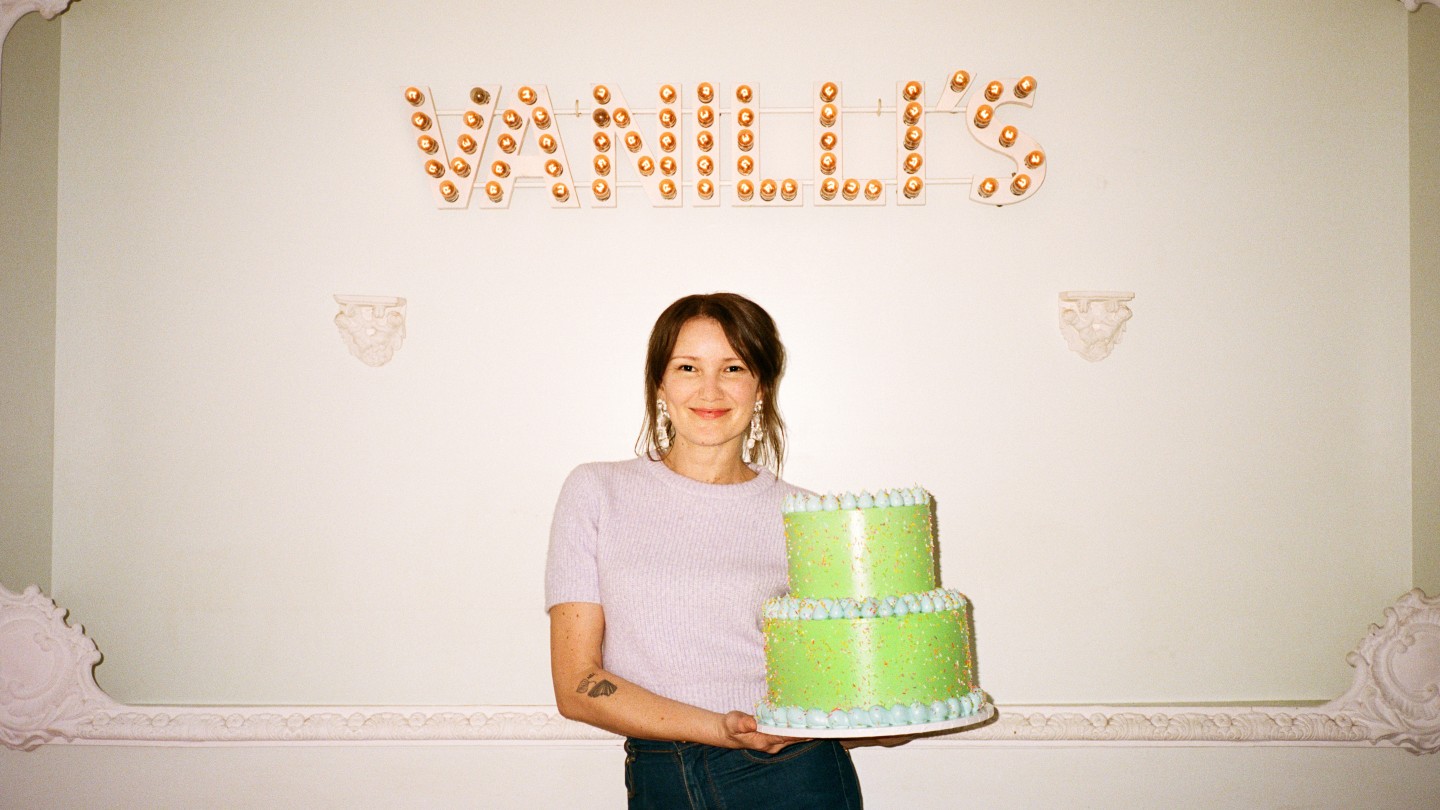
Roula Khalaf, Editor of the FT, selects her favourite stories in this weekly newsletter.
When Lily Jones, aka Lily Vanilli, was thinking how to mark 15 years of her East London bakery – which has made cakes for everyone from Elton John and Madonna to the V&A and 10 Downing Street – she knew it should be more meaningful than a stunt or giveaway. In the midst of a cost of living crisis, why not use her birthday to spotlight the importance of celebrating other people’s? The Lily Vanilli Birthday Project, which launches today, aims to provide birthday cakes to underprivileged children across London who might not otherwise get one.
“If people are struggling to put food on the table, a birthday cake, which is relatively indulgent and expensive, can slip through the cracks,” she says. And yet experience tells her a birthday cake matters. It’s not just an expression of joy and a special way of marking that day, she says: “For the individual, it’s important because it puts them at the centre of attention. The candles, the song – all of that ritual makes people feel seen. And there’s the symbolism of cutting up and sharing the cake with others.”
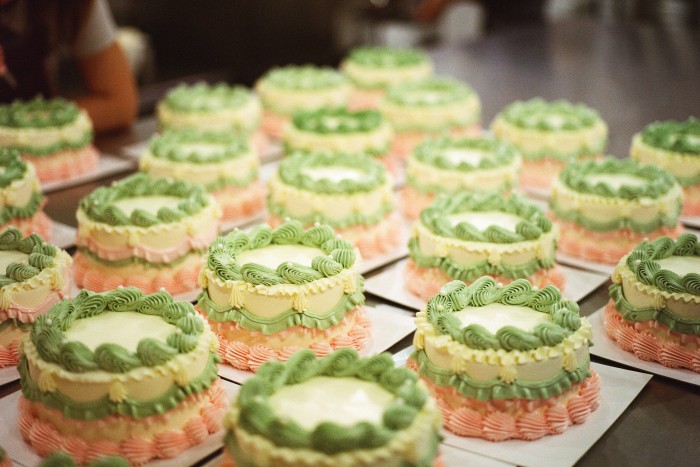
For the youngest recipients, a birthday cake can be transformative, as Jones discovered when volunteering for The Sick Children’s Trust, a charity that provides families of seriously ill children with places to stay. “I was working with incredibly shy kids dealing with a great deal of trauma,” she says. “I saw first-hand how a cake could break the ice, and kids who wouldn’t speak came out of their shells in quite moving ways.”
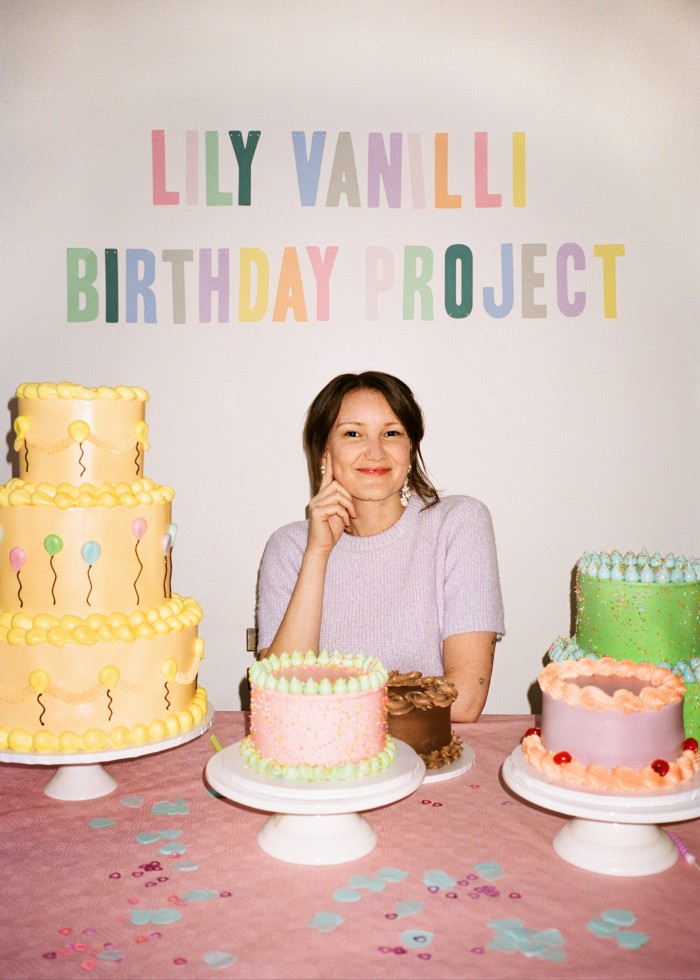
Lily Vanilli is working with the Mayor’s Fund for London to facilitate the roll-out. Contributors can donate the cost of a whole cake (£40) or any amount at lilyvanilli.com. Each child can customise their cake and have a personal message piped on top. Altruism has always been integral to Lily Vanilli as a business. Previous efforts include Bake for the NHS and Bake for Syria, which kicked off in 2017 with a Columbia Road bake sale featuring bakeries from across London. “It was the first time I saw the power of that simple concept to get people out,” she says.
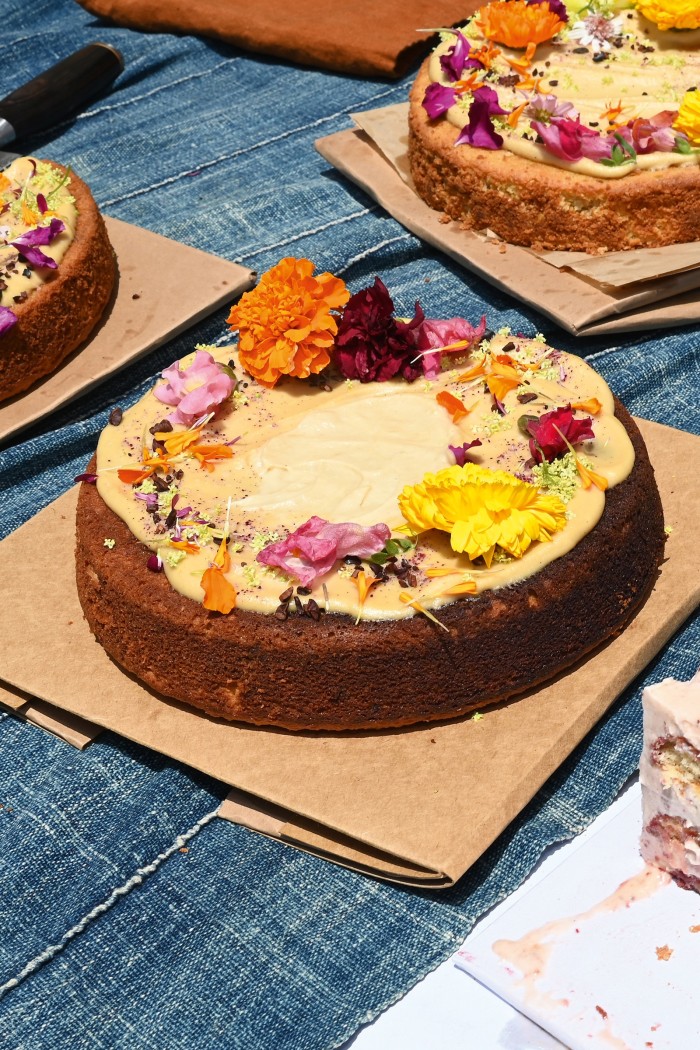
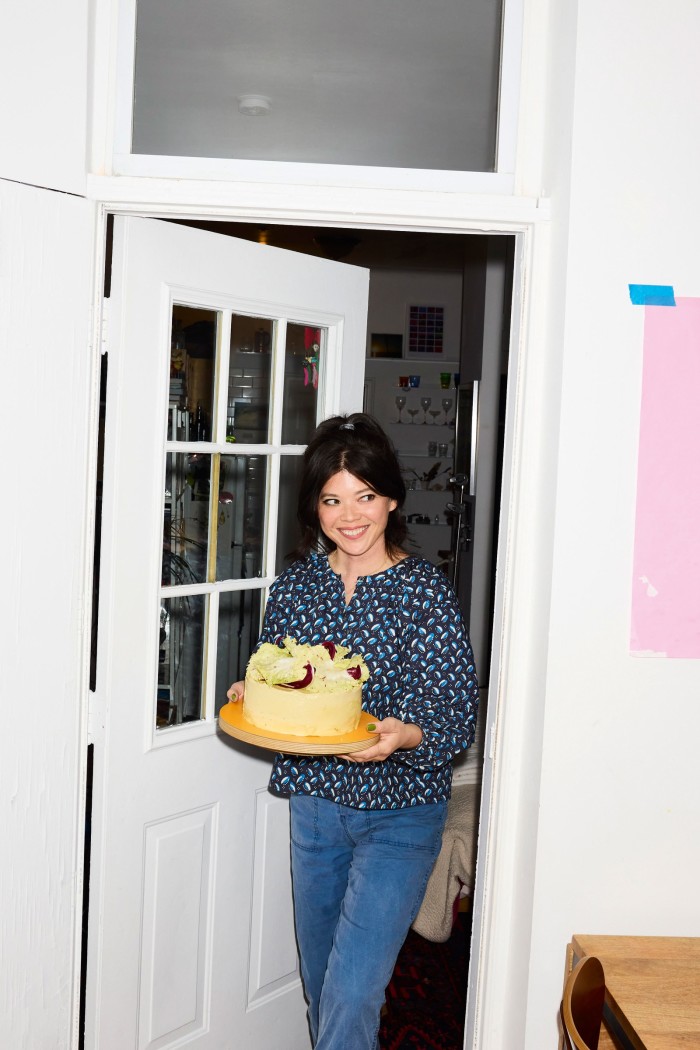
Bake sales are, of course, nothing new. But, as New York-based pastry chef Natasha Pickowicz has pointed out, they are an accessible, effective means of mobilising communities and forms of protest. She sparked a US-wide movement of pastry chef-led bake sales in 2016 when she organised her first New York sale in aid of Planned Parenthood. This year, to coincide with her More Than Cake (Artisan) book tour, she staged bake sales across the country, including one in New York in aid of The Brigid Alliance (which supports people who need to travel for abortion care) and one in LA to benefit Chinatown Service Centre (providing social services to people in Chinatown). Gather for Good is another US organisation spearheading bake sales, including Pies for Justice (a BIPOC fundraiser held on Juneteenth) and, every spring, Cake for Choice (in support of reproductive rights).
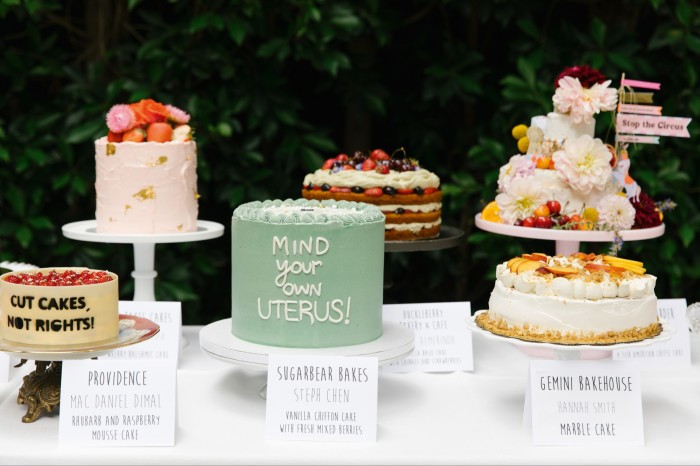
In the UK, I’ve been struck by Indonesian supper club host Rahel Stephanie (@eatwithsp00ns), who annually bakes to raise funds for Tarena (her next fundraiser will be in August 2024), a charity supporting trans communities in Indonesia. Her popular pandan berry blondies embody her message: “Pandan is found a lot in Indonesian food. I want to draw parallels between something inherently Indonesian and trans as a human right, and how trans communities shouldn’t be excluded in my homeland.”
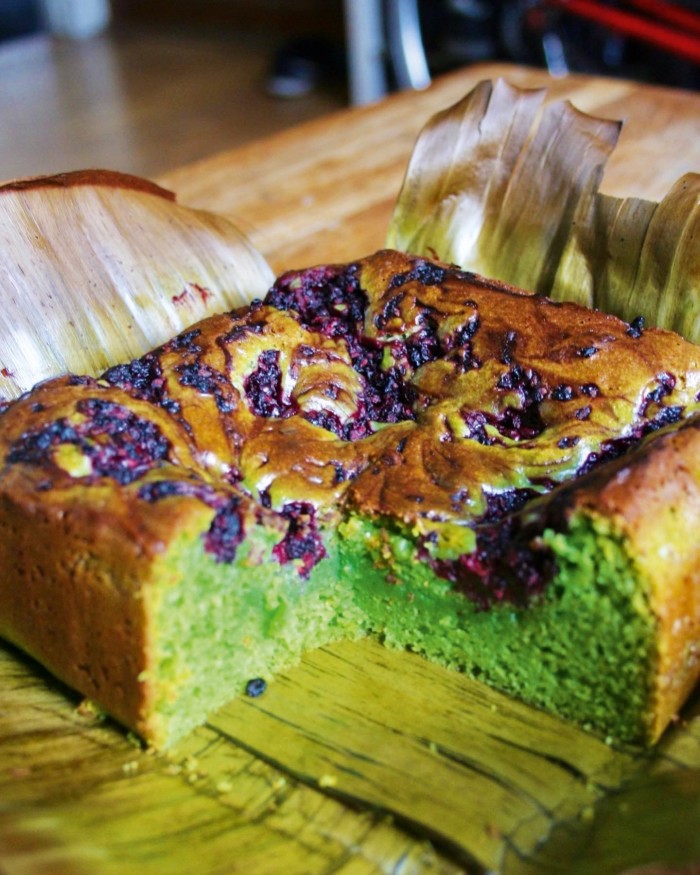
In war, baking can become an act of solidarity and even resistance. London-based food writer, ITN producer and Bake for Ukraine ambassador Felicity Spector has visited Ukraine several times since war broke out and seen how important bread culture has become: “A lot of recent attacks have been against grain production and export,” she says. “Celebrating Ukraine’s connection with wheat is symbolic. The main Ukrainian bread is palyanytsya, a word that’s also taken on new significance because Russians can’t pronounce it. At the beginning of the war, when kids set up fake roadblocks, they would stop cars and ask people to say ‘palyanytsya’. If they couldn’t say it properly, they’d be [exposed as] Russian. It was like a code word.”
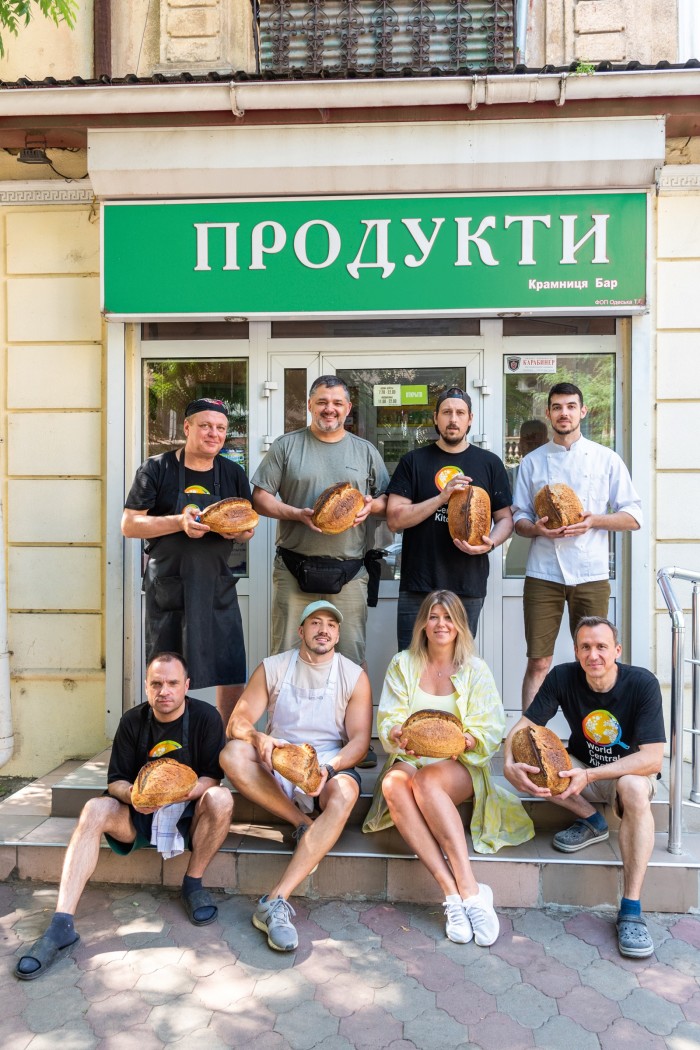
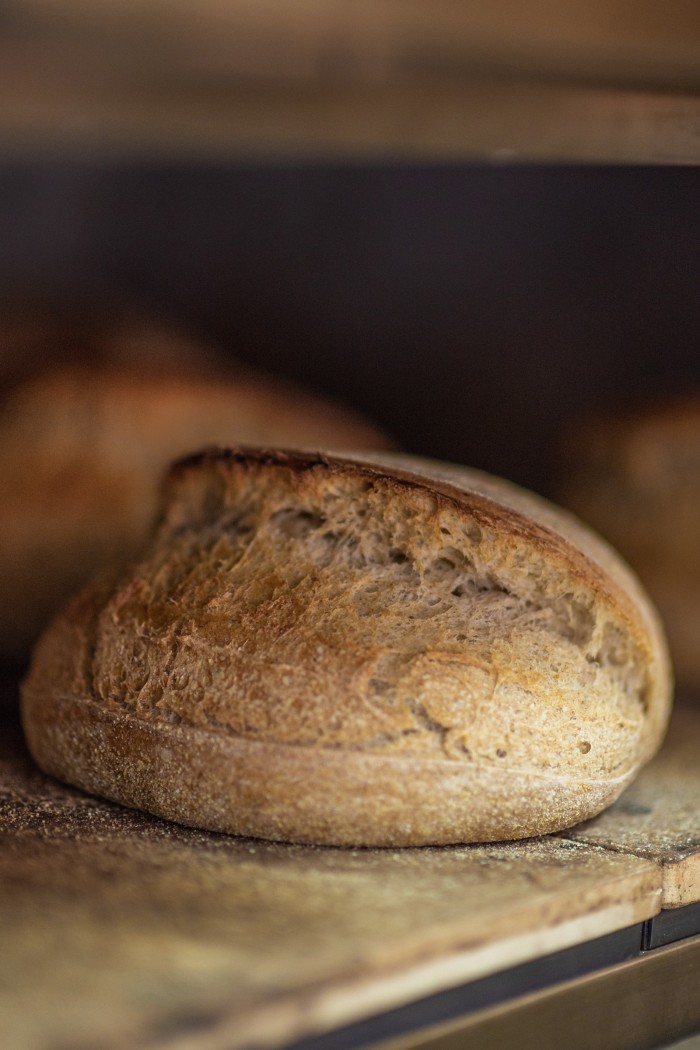
Bake For Ukraine both shares traditional Ukrainian bread recipes and collects donations to support bakeries in the country. The act of giving and breaking bread has also become freighted with meaning, particularly in occupied and frontline territories where many rely on food aid. “Fresh bread is something people really miss when they don’t have it, especially older people,” says Spector. “I’ve seen an old lady burst into tears being handed a loaf. People feel lost in those situations, and having something familiar is comforting. To know people haven’t forgotten about you too. That’s been part of it for me: showing up for people, saying, ‘I’m interested in your story.’ Bread is something that takes time to make. When you’re giving to people who have lost a lot, you want to give them something you really care about as well.”
Last year’s memoir Breadsong: How Baking Changed Our Lives (Bloomsbury) told the story of how 14-year-old Kitty Tait from Oxfordshire was able to combat crippling anxiety and depression by taking up baking. The book, co-authored with her father Al, is being developed for a film, while the now 19-year-old’s Breaducating Britain initiative is donating bread kits to schools, food hubs, prisons, charities and community groups across the country.
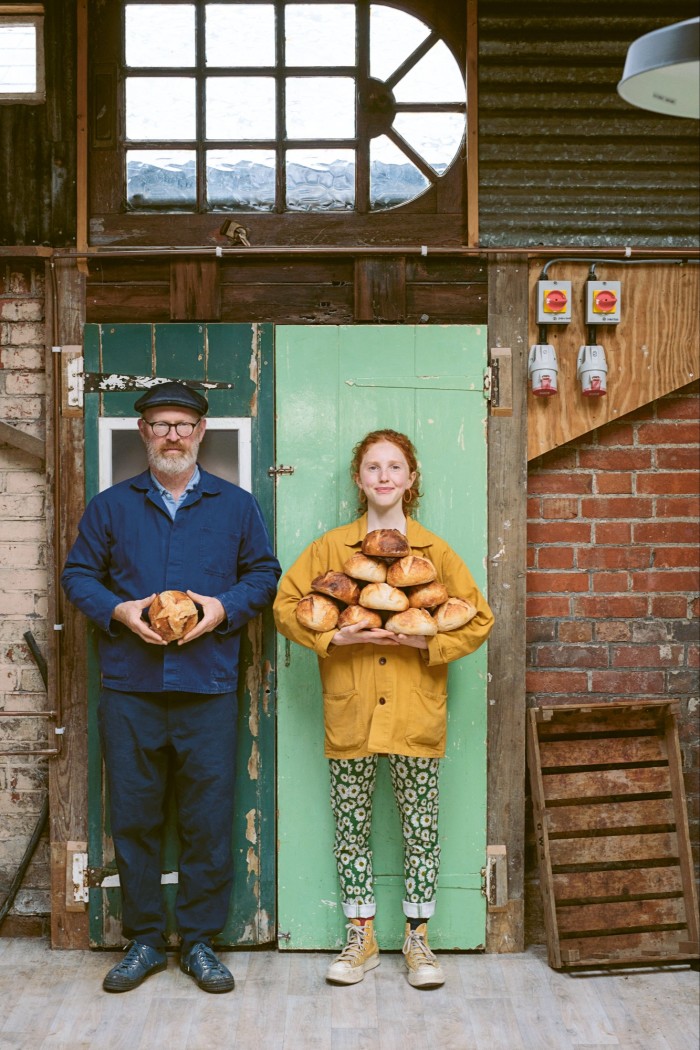
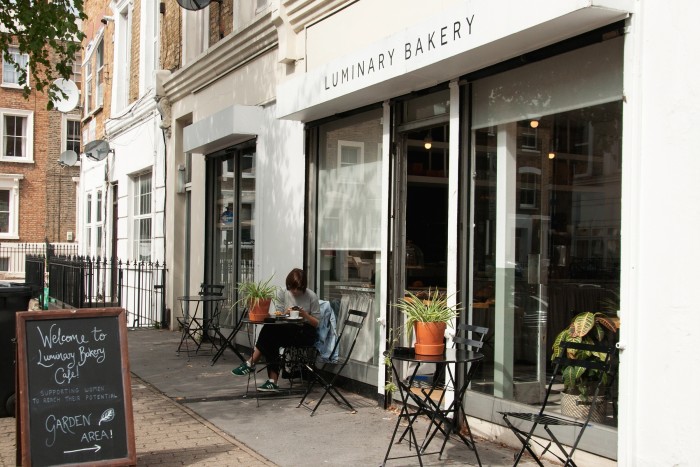
The same principles underlie Luminary Bakery, a charity and social enterprise in London that uses baking to empower women who’ve experienced extreme poverty, disadvantage and abuse. Participants learn how to bake and other life skills too, including resilience. “Baking doesn’t always go to plan,” says managing director Leila Siassi Faiz. “And when the women start in our bakeries and have to bake at high volume and speed, it’s often their first time working under stress. But they realise they can do it.” The programme gives many the confidence to enter the workforce for the first time. “These women are rock bottom when they join us,” says Faiz. Baking raises them up.
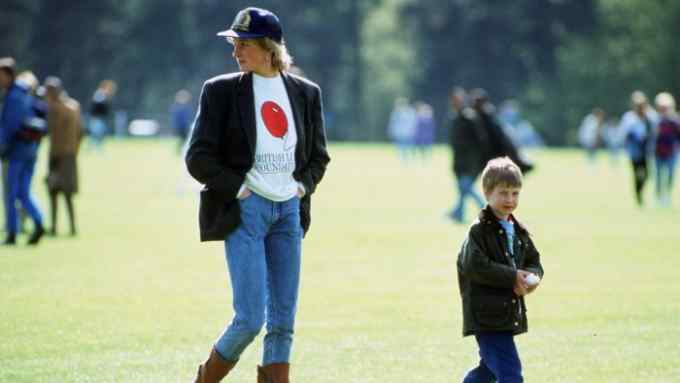
Comments